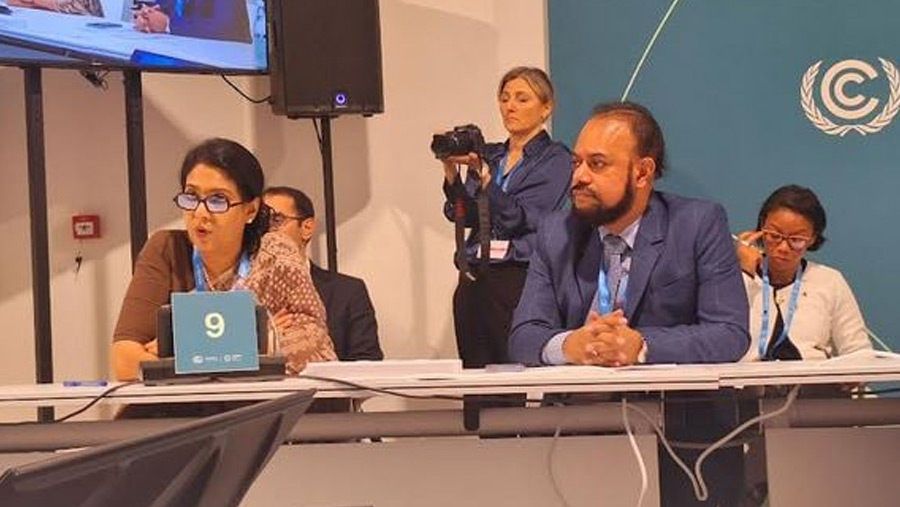


Environment, Forest and Climate Change Adviser of the interim government Syeda Rizwana Hasan on Tuesday (Nov 19) said energy transition and climate financing are the key to Bangladesh's sustainable development.
Speaking as the chief guest at the session titled "Pathways to tripling Renewables in South Asia" during the global climate meet – Conference of Parties-29 (COP29) in Baku, Azerbaijan, she said the Bangladesh government is revising its energy policies to transition from fossil fuel-based energy to renewables. "High import tariffs are being reconsidered, and foreign investments in solar energy are being encouraged. With air pollution largely driven by power plants, now is the ideal time for Bangladesh to invest in renewable energy," she said.
Rizwana highlighted that the rooftop solar installations could meet up to 40 percent of the nation's renewable energy needs, while underutilised lands, including tea estates and government-owned barren lands, can be leveraged for renewable energy projects, according to a message received in Dhaka.
She further added Bangladesh is exploring regional hydropower opportunities from Nepal and Bhutan through India and is keen to establish a regional transmission system to integrate solar and wind energy efficiently.
Earlier in the day, she also spoke at the session titled "Bilateral with LDC Ministers on Mitigation" at the climate meet.
Rizwana stressed the urgent need to close the emissions gap within this decade to limit global warming to 1.5 degree Celsius. "Achieving this target requires a 43 percent reduction in global greenhouse gas emissions by 2030 and 60 percent by 2035 relative to 2019 levels, aiming for net-zero emissions by 2050," she said.
She also called for enhanced international cooperation and support for implementing conditional Nationally Determined Contributions (NDCs) of Least Developed Countries (LDCs).
The Mitigation Work Programme must facilitate the mobilisation of financial resources and investments to meet these targets, the adviser said.
"Global dialogues must unlock barriers to accessing climate finance. If emissions continue to rise, the cost of adaptation will surpass our capacity to respond," she warned.